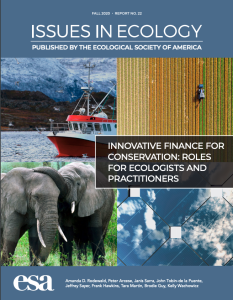December 2020 Newsletter

December 2020 Newsletter
Welcome to the Southeast Climate Adaptation Science Center’s December 2020 Newsletter.
For news and upcoming events related to the Southeast Climate Adaptation Science Center,
subscribe to our monthly newsletter.
SE CASC News | Resources | Publications | Tribal News | Partner News | Webinars | Events | Opportunities

Southeast Climate Adaptation Science Center News
We at the Southeast Climate Adaptation Science Center wish you
a safe and peaceful holiday season and healthy and hopeful new year.

Image Credit: Alan Cressler
Read about some highlights from this year in this SE CASC 2020 Retrospective.
Nominations for the 2021-2022 cohort of Global Change Fellows are now being accepted! NC State Faculty Affiliates may nominate up to two students in an NC State Master’s or PhD program. More information.
Join our SE CASC Science Seminar Series on December 15 at 11am ET. Suresh Subedi will present a webinar, Developing Future Habitat Condition Scenarios for Wildlife in the Imperiled Pine Rockland Ecosystem of South Florida. Get more information and register.
View a recording of the second Fall SE CASC Science Seminar held on Nov.17, Water Availability and Streamflow in Current and Future Climatic and Landscape Conditions, by SE CASC Researcher, Jacob Lafontaine, here.
Two SE CASC research teams are presenting at a session of the 2021 American Meteorological Society Annual Meeting co-organized by Assistant University Director, Aranzazu Lascurain.
Check out these CNR Spotlights highlighting Global Change Fellows enrolled in the NC State College of Natural Resources.
Research by 2019-2020 Global Change Fellow, Erin Voigt was featured by NC Sea Grant – Crabitat: Juvenile Blue Crab Habitats in Pamlico Sound.
SE CASC Tribal Liaison, Casey Thornbrugh discusses the significance of Native American Heritage Month in this USET video.
SE CASC Researcher, Stephanie Romañach is lead author on a new publication, Small mammal responses to wetland restoration in the Greater Everglades ecosystem.
SE CASC Co-Investigator, Astrid Schnetzer, is co-author to Acidification in the U.S. Southeast: Causes, Potential Consequences and the Role of the Southeast Ocean and Coastal Acidification Network.
Faculty Affiliate, Skylar Hopkins is lead author on a new publication, How to identify win–win interventions that benefit human health and conservation.
SE CASC Researcher, Mike Osland, is co-author to A comparison of plant communities in restored, old field, and remnant coastal prairies.
Conservation Corridor: Integration of a grazing network into row crop agriculture.
Resources
FEATURED RESOURCE

Innovative Finance For Conservation: Roles For Ecologists And Practitioners
This Ecological Society of America report summarizes the challenges and opportunities related to private investments in conservation efforts. Authors introduce the term “conservation finance” which refers to an emerging discipline that seeks to develop environmentally sustainable financial products and investment strategies that aim to generate returns for investors while maintaining or enhancing ecosystem services and protecting natural resources. Learn more.
Climate Change and Human Health Literature Portal. This searchable database contains a curated portal of global peer-reviewed research and gray literature on the science of climate impacts on human health. Learn more.
Climate Futures Toolbox. The North Central Climate Adaptation Science Center has released this new R package which enables easy access and analysis of downscaled climate data and can help in facilitating climate change analysis and scenario planning. Learn more or watch the training video.
Neighborhoods at Risk Tool. This map-based tool utilizes census data and climate projections to reflect local neighborhoods that are potentially vulnerable to the impacts of climate change. More information.
New Presentation: Our Changing Climate. Climate Central has released a new customizable Climate 101 presentation that meteorologists, journalists, and others to use for educational outreach. Learn more.
Resilience Metrics. This webpage offers a collection of tools that intend to aid natural resource planners, managers, community leaders, and others working in a climate-sensitive field in supplementing their current resources and building the capacity of their climate adaptation efforts. Learn more.
In the Media
Earth just notched its warmest November, as 2020 closes in on record for hottest year. Washington Post
Climate change exacerbates biodiversity loss. Phys.org
Earth Is Still Sailing Into Climate Chaos, Report Says, but Its Course Could Shift. NY Times
Is Your State Ready for the Health Harms of Climate Change? Natural Resources Defense Council
This is what climate change looks like. CNN
Native American Perspectives on Climate Change Adaptation. Early Career Climate Network Podcast
Notable Publications
Achievements and needs for the climate change scenario framework. Journal abstract: Long-term global scenarios have underpinned research and assessment of global environmental change for four decades. Over the past ten years, the climate change research community has developed a scenario framework combining alternative futures of climate and society to facilitate integrated research and consistent assessment to inform policy. Here we assess how well this framework is working and what challenges it faces. We synthesize insights from scenario-based literature, community discussions and recent experience in assessments, concluding that the framework has been widely adopted across research communities and is largely meeting immediate needs. However, some mixed successes and a changing policy and research landscape present key challenges, and we recommend several new directions for the development and use of this framework. Link to article.
Seasonality of biological and physical systems as indicators of climatic variation and change. Journal Abstract: Evidence-based responses to climate change by society require operational and sustained information including biophysical indicator systems that provide up-to-date measures of trends and patterns against historical baselines. Two key components linking anthropogenic climate change to impacts on socio-ecological systems are the periodic inter- and intra-annual variations in physical climate systems (seasonality) and in plant and animal life cycles (phenology). We describe a set of national indicators that reflect sub-seasonal to seasonal drivers and responses of terrestrial physical and biological systems to climate change and variability at the national scale. Proposed indicators and metrics include seasonality of surface climate conditions (e.g., frost and freeze dates and durations), seasonality of freeze/thaw in freshwater systems (e.g., timing of stream runoff and durations of lake/river ice), seasonality in ecosystem disturbances (e.g., wildfire season timing and duration), seasonality in vegetated land surfaces (e.g., green-up and brown-down of landscapes), and seasonality of organismal life-history stages (e.g., timings of bird migration). Recommended indicators have strong linkages to variable and changing climates, include abiotic and biotic responses and feedback mechanisms, and are sufficiently simple to facilitate communication to broad audiences and stakeholders interested in understanding and adapting to climate change. Link to article.
Small streams dominate US tidal reaches and will be disproportionately impacted by sea-level rise. Rivers and streams make up only 0.6% of Earth’s land surface, but play a crucial role in global biogeochemical cycles and local ecosystem services. Researchers recognize a gap in understanding of these ecosystem services and aim to provide a foundation to better understand the role of tidal streams. Their work suggests a high prevalence of smaller, low order streams that will be disproportionately affected by relative sea level rise in the future. While these small streams make up only a modest amount of total flow, they are tightly connected to terrestrial systems and likely have a significant influence on local and global biogeochemical cycles and ecosystem services. These ecosystems have been underrepresented in past studies and this work indicates a critical research need to investigate the role of small, low order tidal streams under current and future conditions. Link to article.
The CARE Principles for Indigenous Data Governance. The International Indigenous Data Sovereignty Interest Group, composed of nation-state based Indigenous data sovereignty networks and individuals, developed the “CARE Principles for Indigenous Data Governance.” These principles emphasize Collective benefit, Authority to control, Responsibility, and Ethics when developing data systems to provide opportunities to advance innovation, governance and self-determination among Indigenous peoples. These principles have previously been adopted by the Research Data Alliance, the Smithsonian Institution, and the Open Data Charter through relationships, policies, and mechanisms of these institutions. The CARE principles and the previously studied FAIR principles work in tandem to create data that reflects Indigenous peoples, is useful to Indigenous peoples, and remains under Indigenous control. Link to article.
The next generation of climate services. Climate services provide climate information to aid individuals and organizations in making evidence-based decisions about climate change. These services have advanced with the recognition of the growing community of decision-makers working in diverse decision contexts, but investments in this field have not kept pace with demand. Researchers argue that there is a need to enhance the process of providing climate services through a “next-generation” approach. This would include a network of highly trained “next-generation” climate services translators that would act as facilitators of a larger adaptation and/or resilience effort. This network’s primary goal would be to act as a facilitator among scientists and users to help them work better together over time and to increase overall capacity in the field of climate and sustainability. Link to article.

Tribal News
Visit USET Climate Change Headlines for updates on information regarding climate science events, funding opportunities, best practices, and highlights from across the USET region.
National Tribal Leadership Climate Change Summit sponsored by The Affiliated Tribes of NW Indians, National Congress of American Indians, United South and Eastern Tribes, and Pacific Northwest Tribes will host the second virtual session on Tribal Climate Resiliency on Jan. 12 at 1pm EST. More information.
Request for Applications is open for EPA Tribal Wetland Program Development Grants, to assist tribal governments and intertribal consortia to develop or refine tribal programs which protect, manage, and restore wetlands. More information and applications due Jan. 15.
USDA is accepting applications for the 1994 Tribal Scholars Program which seeks to increase the number of American Indian and Alaska Native students studying agriculture, food, natural resource sciences, and related disciplines. Apply here by Jan. 31.
United South and Eastern Tribes is offering a Virtual Climate Change Vulnerability Assessment/Adaptation Plan Writing Retreat from Jan. 25-27 which will provide writing opportunities for Tribal Nations continuing to make progress on their adaptation plans. More information.
Department of Interior is accepting proposals for the WaterSMART Drought Response Grant Program which provides financial assistance to water managers to develop and update comprehensive drought plans and implement projects that will build long-term resilience to drought. Apply here by Feb. 5.

Regional Partner News
National Academies’ Gulf Research Program Awards $5.27 Million to Enhance Understanding of Gulf Ecosystems and Their Interactions with Natural Processes and Human Activities
Southeast Conservation Adaptation Strategy: Southeast Blueprint 2020 now officially complete
National Fish and Wildlife Foundation: $2.1 Million in Conservation Grants Awarded from NFWF’s Southeast Aquatics Fund
National Aeronautics and Space Administration: Beating Back the Tides
Southeast Regional Climate Center: November 2020 Southeast Region Monthly Climate Report
NOAA Climate Office: November 2020 was warmer than average across most of the U.S.
South Atlantic LCC: Panhandle rising: How small cities in Florida are working together to rebuild for resilience

Webinars
Find more upcoming events in our calendar.
Dec. 15 | 10am – 11:30am | Talking about Climate Change webinar
Dec. 15 | 11am – 12pm | SE CASC Science Seminar: Developing Future Habitat Condition Scenarios for Wildlife in the Imperiled Pine Rockland Ecosystem of South Florida
Dec. 15 | 1pm – 2pm | Apalachicola-Chattahoochee-Flint (ACF) Drought and Water Monthly Webinar
Dec. 15 | 2pm – 3:30pm | Corporate Climate Leadership and the Task Force on Climate-related Financial Disclosures (TCFD) Journey
Dec. 16 | 10am – 12pm | ACES Web Based Symposium – Session 1: ACES Intersections: Making Connections to Expand Our Community
Dec. 16 | 11am – 12:30pm | What does a changing climate mean for Georgia’s water resources?
Dec. 16 | 12pm – 1pm | Sea Grant’s Practical Approach to Economic Valuation: building a toolbox for non-economists
Dec. 16 | 1pm – 2pm | Nature Based Solutions in Urban Areas
Dec. 16 | 1:30pm – 3pm | ACES Web Based Symposium – Session 2: ACES Fellows Lightning Round
Dec. 16 | 2pm – 3:30pm | Putting 2020 in the Rear View: Understanding the Impact of COVID-19 on Collaborative Research
Dec. 17 | 9:30am – 10:30am | NOAA Eastern Region Climate Services: High-tide Flooding Report and Impacts to the Eastern Region
Dec. 17 | 10am – 11am | South Atlantic Third Thursday Web Forum
Dec. 17 | 10am – 11:30am | ACES Web Based Symposium – Session 4: What’s Next: An ACES 2021 Preview
Dec. 17 | 1pm – 2:30pm | ACES Web Based Symposium – Session 5: ACES Fellows Lightning Round II
Dec. 17 | 1pm – 2:30pm | The Future of Landscape Conservation: Cultivating Landowner Engagement
Jan. 7 | 9am – 10am | Climate and Conservation Coffee
Jan. 12 | 10am – 11am | Southeast Climate Monthly Webinar

Upcoming Events
Find more upcoming events in our calendar.
Jan. 5-9, 2021 | National Council for Science and the Environment Drawdown 2021 Conference | Virtual
Jan. 20-21, 2021 | 4th Annual RISCC Management Symposium | Virtual
Apr. 14, 2021 | The Gulf of Mexico Conference 2021 Virtual Preview | Virtual

Opportunities
Student Announcements
USDA is accepting applications for the 1890 National Scholars Program which aims to increase the number of minorities studying agriculture, food, natural resource sciences, and the related disciplines. Apply here by Jan. 31.
National Oceanic and Atmospheric Administration’s National Sea Grant Office and NOAA Fisheries are accepting applications for the Joint Graduate Fellowship for doctoral students in population and ecosystem dynamics or in marine resource economics. Apply here by Feb. 17.
National Academy of Sciences Gulf Research Program has opened applications for Science Policy Fellowships, one-year terms on the staff of federal, state, local, or non-governmental environmental, natural resource, oil and gas, and public health agencies in the Gulf of Mexico region. Get information and apply here by Mar. 3.
Hiring Announcements
South Central CASC is hiring a post-doc to work in the Department of Natural Resource Ecology and Management at Oklahoma State University on a project that aims to understand the nexus of climate change and prescribed fire risk analysis, tolerance, and communication. Apply here.
North Carolina Office of Recovery and Resiliency is accepting applications for a Resilient Communities Program Manager located in Durham, NC. Apply here by Dec. 14.
Brandeis University Department of Sociology and Environmental Studies Program is hiring a tenured Associate Professorship with an emphasis on Climate Justice. Apply here by Jan. 4.
Arizona State University is seeking an Assistant Professor of Just and Sustainable Energy Transitions. Applications will be accepted here until Jan. 4.
University of Nebraska School of Natural Resources is hiring a Research Technician to support National Drought Mitigation Center faculty. Apply here by Jan. 11.
National Academy of Sciences Gulf Research Program is accepting applications for Early Career Research Fellowship, Human Health and Community Resilience track, for work contributing to the advancement of health equity in the Gulf of Mexico region or Alaska by considering the social determinants of health. Get information and apply here by Jan. 13.
Research Grants
North Carolina Sea Grant is accepting proposals for their 2022-2024 core funded research projects. Pre-proposals are due here by Jan. 11
EPA is soliciting applications for Fiscal Year 2020 and Fiscal Year 2021 National Wetland Program Development Grants for projects that develop or refine state, tribal, or local government wetland programs. More information about applications, due Jan. 12.
National Fish and Wildlife Foundation has released the 2021 RFP for the Longleaf Landscape Stewardship Fund. Proposals may be submitted here until Feb. 4.
Miscellaneous
U.S. Department of State seeks expert comment on the second-order draft of the Working Group II contribution to the Intergovernmental Panel on Climate Change Sixth Assessment Report. Comments will be accepted here until Jan. 8.
Earth Institute at Columbia University invites abstracts for talks, roundtable discussions, interactive workshops, and training sessions for their Managed Retreat Virtual Conference. Abstracts will be accepted here until Jan. 15.
Climate Change Response Framework is offering an online training in Adaptation Planning and Practices, Jan. 25 – Mar. 15. Participants from regions other than the Midwest and Northeast can join if space allows. More info.
- Categories:

